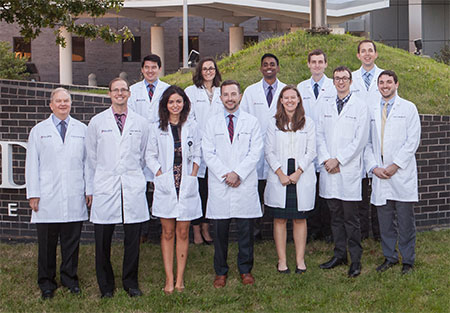Congratulations on your ophthalmology residency! You are entering a highly rewarding profession and are poised to make an enormous impact both on many individuals and society as a whole. Thirty years ago, I was where you are now; over the last quarter century, I have watched new residents adapt and mature. Here are some of the things I’ve seen help residents maximize their experience:
1. Embrace/own your cluelessness. You are used to always being at the top and in command of the material you deal with. But that’s over now (at least temporarily). Lower your personal expectations to a realistic level. If you can’t do a peripheral retinal exam or don’t know what monofixation syndrome is, don’t beat yourself up. Instead of being discouraged, use this cluelessness to help you take control of your individual learning and devise your own goal-oriented pathway to success.
2. Don’t take constructive criticism personally. Your faculty are tremendously dedicated to teaching you — but they would do you a disservice if they did not point out your mistakes. One of their most effective techniques is to learn how you think and process information so they can point out errors and help you learn better and faster. This interaction with faculty should not make you feel inferior; instead, you should be thankful that they are invested in you and respect you enough to work through the kinks.
3. Enjoy dealing with different personalities and communication styles. You will interact with people from different cultural, ethnic, social, religious and moral backgrounds and a wide variety of interests and dislikes. Faculty, staff and patients will expose you to new ideas and communication methods. You will want to adopt some of them yourself and will disagree with others. Have fun with the diversity and do not allow areas of difference to alter your ability to think and act with respect.
4. Practice technical skills early. Due to changes in medical school training, most students experience far fewer hands-on experiences than they did 20 years ago. Often you have to do some remedial work, starting with basics of instrument use, tissue handling and suturing. Get in your wet lab during the first month and begin to practice. Keep it up a minimum of one hour per week through your first year. You will get to do more procedures if you are prepared, and your education in the OR can focus on more advanced concepts sooner if you take these steps.
 |
|
Dr. Siatkowski (pictured left) with the 2017-2018 residents at Dean McGee Eye Institute in Oklahoma City.
|
5. Don’t limit yourself to one type of reference material. Wonderful as it may be, there is more to the literature than the Basic and Clinical Science Course™ (BCSC©) set. Expand your knowledge base and learn the “hows” and “whys” by reading things like articles, textbooks and the Academy’s Focal Points. The Academy also has great webinars and podcasts on various topics, as do subspecialty societies.
6. Learn to have difficult conversations. Most errors in medicine (as well as most relational difficulties) stem from problems in communication. Medicine is a very verbal profession. You have to talk in order to educate and comfort patients, hand off a complicated patient, resolve your call schedules, teach a medical student or perform high-quality research. Talking will never become defunct. And it’s not a natural skill — it takes practice. Use your residency to become as proficient in verbal communication as you will in phacoemulsification.
7. Balance to avoid burnout. Most of you will look back fondly on your residency for the rest of your career, but it can be exhausting, stressful and incredibly difficult at times. It will make you burn out if you don’t have fulfillment in the other parts of your life. Make new friends — especially those out of medicine, maintain ties with your family, enjoy or develop new hobbies, eat well, exercise, go to movies, take vacations and listen to great music. Medicine is a huge part of your life. To do it well, you must regard it as an avocation (a calling) rather than just a vocation (job). But it’s only a part of your life story. Make sure you participate in the other chapters.
8. Take the long view. Don’t sweat the small things: many issues that upset us are relatively unimportant in the big picture. But you can, and should, cultivate a love for learning throughout your entire career. The pursuit of excellence through lifelong learning means that although we may never fully arrive at our destination, we will never cease the journey.
* * *
 About the author:
About the author: R. Michael Siatkowski, MD, is the David W. Parke II, MD Endowed Professor, Vice Chair for Academic Affairs and Residency Program Director at Dean McGee Eye Institute in Oklahoma City. He is also the 2018 president of the Program Director’s Council of the Association of University Professors of Ophthalmology (AUPO).